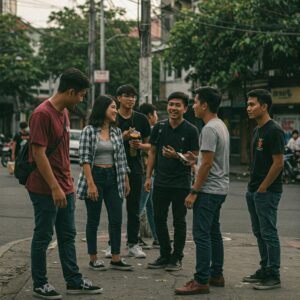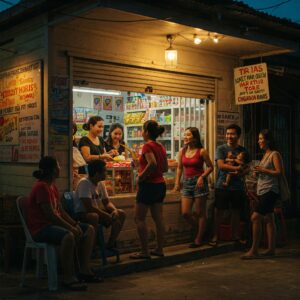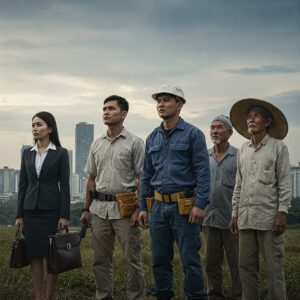Month: January 2025

From “Carabao” to “Chicken”: Animal Jokes in Filipino Humor: Understanding Cultural Significance and Social Commentary
In Filipino culture, humor serves as a powerful lens through which society views itself, with animal-based jokes and references playing a particularly significant role in this comedic tradition. The incorporation of animals into Filipino humor reflects not just the country’s agricultural heritage but also demonstrates how Filipinos use familiar creatures from their everyday surroundings to […]
Read More
Social Media and Language: The Rise of “Taglish” and Online Code-Switching
Remember when we thought proper grammar and perfectly structured sentences were the only way to communicate? Well, social media came along and said “hold my beer!” The digital age has revolutionized not just how we communicate, but the very fabric of language itself. In the Philippines, this transformation is particularly evident with the rise of […]
Read More
Filipino Stand-Up Comedians: Breaking Barriers and Making People Laugh
The Philippines, a land of vibrant culture, stunning landscapes, and warm hospitality, is also home to a burgeoning stand-up comedy scene. With their unique blend of wit, humor, and social commentary, Filipino stand-up comedians are not only making waves in the local entertainment industry but are also gaining recognition on the international stage. The rise […]
Read More
Istambay: Understanding Filipino Youth and the Culture of Hanging Out
The term “istambay” (derived from the English word “stand by”) has become deeply embedded in Filipino culture, particularly among the youth. This cultural phenomenon represents more than just idle time-spending; it embodies a complex social dynamic that reflects broader societal conditions, economic realities, and cultural values in the Philippines. The practice of “tambay” or hanging […]
Read More
“Kilig” to “Sawi”: A Guide to Filipino Expressions of Love and Heartbreak
The Filipino language, with its rich cultural heritage and emotional depth, offers a fascinating window into how love, romance, and heartbreak are experienced and expressed in Philippine society. These emotionally charged words and expressions, deeply embedded in Filipino culture, often lack direct English translations yet perfectly capture the nuanced experiences of falling in love, experiencing […]
Read More
The Sari-Sari Store: More Than Just a Shop, It’s a Community Hub
The sari-sari store, a ubiquitous fixture in Philippine neighborhoods, represents far more than just a retail establishment. According to the Philippine Statistics Authority (2023), these micro-enterprises account for approximately 40% of all retail outlets in the country, with an estimated 800,000 stores operating nationwide. These small-scale shops, whose name literally translates to “variety” or “sundry” […]
Read More
The “Tingi” Culture: Why Filipinos Buy Sachets, Not Bulk
The Philippines presents a unique case study in consumer behavior, where the “tingi-tingi” or sachet economy has become deeply embedded in daily life. This phenomenon, characterized by the purchase of products in small quantities rather than bulk, reflects both economic realities and cultural preferences that have shaped the nation’s retail landscape. The practice of buying […]
Read More
“Bahala Na” and Filipino Fatalism: A Cultural and Psychological Analysis
The Filipino phrase “Bahala na” has become deeply woven into the fabric of Philippine society, representing a complex cultural phenomenon that extends far beyond its literal translation of “leave it to fate” or “come what may.” This cultural cornerstone has attracted significant attention from sociologists, psychologists, and cultural anthropologists who seek to understand its impact […]
Read More
The “Overseas Filipino Worker” (OFW) Phenomenon: Sacrifices and Successes
The Philippines has a long and complex history of labor migration that has significantly shaped its social, economic, and cultural landscape. The formalization of labor export began during the Marcos administration in the 1970s as a temporary solution to unemployment and balance of payments problems. However, what started as a stop-gap measure evolved into a […]
Read More
The Filipino Dream vs The American Dream: Understanding Cultural Aspirations and Social Mobility
The concept of a national dream has long been associated with the United States, where the “American Dream” represents the belief that anyone, regardless of their origins, can achieve success through hard work and determination. However, as global perspectives evolve, it’s crucial to examine how other cultures envision their path to prosperity and fulfillment. In […]
Read More